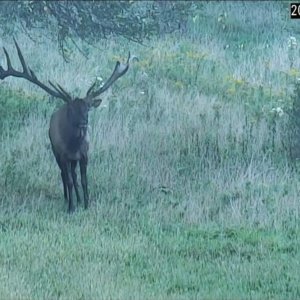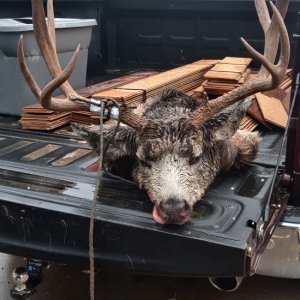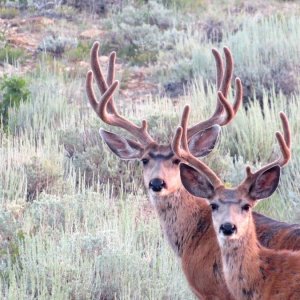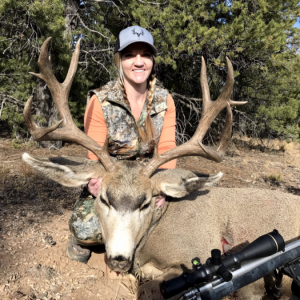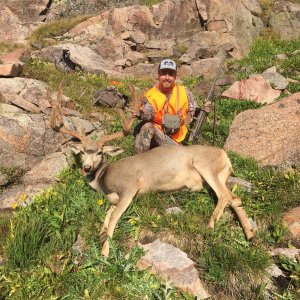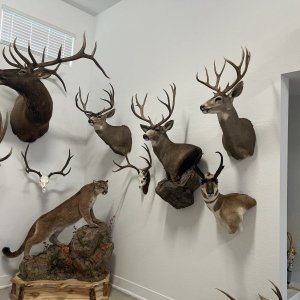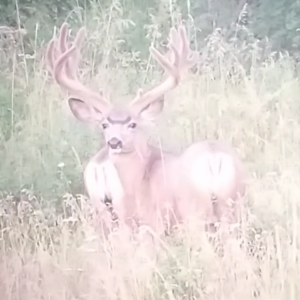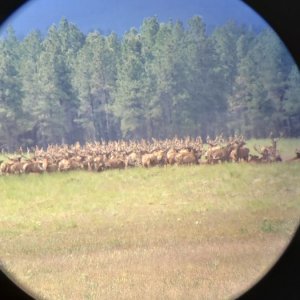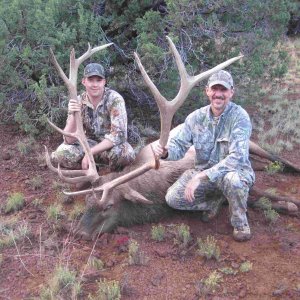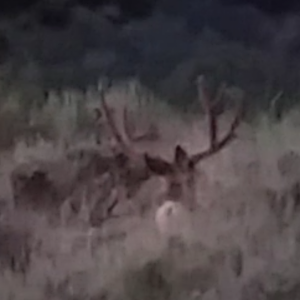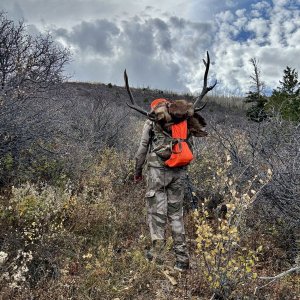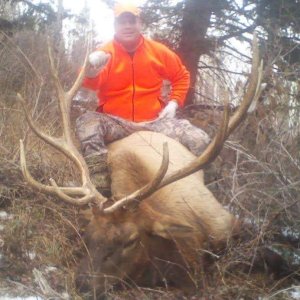B
bobcats
Guest
Article published Sep 8, 2006
Risch authorizes agencies to kill escaped elk in eastern Idaho
Gov. Jim Risch signed an order Thursday declaring open season on about 160 domesticated trophy elk that escaped in recent weeks from an eastern Idaho game preserve.
Risch authorized the "immediate destruction" of the animals by state Fish and Game and Department of Agriculture agents. And he hopes to enlist private hunters too.
The animals' flight from the Chief Joseph hunter's reserve near Rexburg had raised fears they might spread illness and hurt the genetic purity of wild herds ? including those in Yellowstone National Park, just 10 miles away.
The governor is also asking Idaho Fish and Game Commission members, who meet today, to allow hunters and private land owners to shoot the escaped animals ? before they start breeding with wild elk as they wander the region.
"I don't think we've ever had an escape like this before. This is serious business," Risch told The Associated Press. "We have reports they have been seen a considerable distance from the place that they've escaped. The state of Wyoming has already determined it will use lethal means if its agents find any of those elk across the border."
After Fish and Game Director Steve Huffaker on Wednesday called the elk breakout "the train wreck we've seen coming for a long time," Risch acted quickly by contacting officials in Yellowstone, as well as Wyoming and Montana.
"There is a crisis facing our elk herds in eastern Idaho," the governor said. "Because of the escape of domestic elk that was not reported as required by law, we now have these farm-raised elk mingling with our wild elk herds."
The elk are owned by Rex Rammell, Chief Joseph's owner and a veterinarian, and have been bred to have large antlers prized by hunters who pay up to $5,995 in September to kill a bull elk.
Rammell didn't return phone calls from the AP.
He did not report the loss to state officials, Risch said.
Instead, several nearby landowners reported the escape and have been relaying to the state game agency their sightings of suspected domestic elk in the surrounding alfalfa fields and forest slopes.
The elk are tagged, Rammell has told Fish and Game officials, but the tags may not be visible from at least 150 yards away, as state law requires.
He ran up more than $750,000 in fines with Idaho for failing to apply blaze-orange ear tags, although most of the fines were later forgiven by the Idaho Legislature.
Idaho law may allow the state to recover from Rammell some of the costs of controlling the breakout, Risch said.
"I think the state of Idaho will be able to get fairly sizable groups of the elk and harvest them at once," he added. "We're enlisting private hunters, because they're the ones that will be chasing bulls that range far and wide."
Rammell has clashed with state Department of Agriculture officials in the past because he refused to allow state regulators to inspect his herd for chronic wasting disease, which kills elk by eating away their brains.
Though Agriculture Department inspectors already have determined that Rammell's fencing in the escape incident met its standards, the elk likely charged the fence until they created a large hole, officials said.
Risch authorizes agencies to kill escaped elk in eastern Idaho
Gov. Jim Risch signed an order Thursday declaring open season on about 160 domesticated trophy elk that escaped in recent weeks from an eastern Idaho game preserve.
Risch authorized the "immediate destruction" of the animals by state Fish and Game and Department of Agriculture agents. And he hopes to enlist private hunters too.
The animals' flight from the Chief Joseph hunter's reserve near Rexburg had raised fears they might spread illness and hurt the genetic purity of wild herds ? including those in Yellowstone National Park, just 10 miles away.
The governor is also asking Idaho Fish and Game Commission members, who meet today, to allow hunters and private land owners to shoot the escaped animals ? before they start breeding with wild elk as they wander the region.
"I don't think we've ever had an escape like this before. This is serious business," Risch told The Associated Press. "We have reports they have been seen a considerable distance from the place that they've escaped. The state of Wyoming has already determined it will use lethal means if its agents find any of those elk across the border."
After Fish and Game Director Steve Huffaker on Wednesday called the elk breakout "the train wreck we've seen coming for a long time," Risch acted quickly by contacting officials in Yellowstone, as well as Wyoming and Montana.
"There is a crisis facing our elk herds in eastern Idaho," the governor said. "Because of the escape of domestic elk that was not reported as required by law, we now have these farm-raised elk mingling with our wild elk herds."
The elk are owned by Rex Rammell, Chief Joseph's owner and a veterinarian, and have been bred to have large antlers prized by hunters who pay up to $5,995 in September to kill a bull elk.
Rammell didn't return phone calls from the AP.
He did not report the loss to state officials, Risch said.
Instead, several nearby landowners reported the escape and have been relaying to the state game agency their sightings of suspected domestic elk in the surrounding alfalfa fields and forest slopes.
The elk are tagged, Rammell has told Fish and Game officials, but the tags may not be visible from at least 150 yards away, as state law requires.
He ran up more than $750,000 in fines with Idaho for failing to apply blaze-orange ear tags, although most of the fines were later forgiven by the Idaho Legislature.
Idaho law may allow the state to recover from Rammell some of the costs of controlling the breakout, Risch said.
"I think the state of Idaho will be able to get fairly sizable groups of the elk and harvest them at once," he added. "We're enlisting private hunters, because they're the ones that will be chasing bulls that range far and wide."
Rammell has clashed with state Department of Agriculture officials in the past because he refused to allow state regulators to inspect his herd for chronic wasting disease, which kills elk by eating away their brains.
Though Agriculture Department inspectors already have determined that Rammell's fencing in the escape incident met its standards, the elk likely charged the fence until they created a large hole, officials said.



